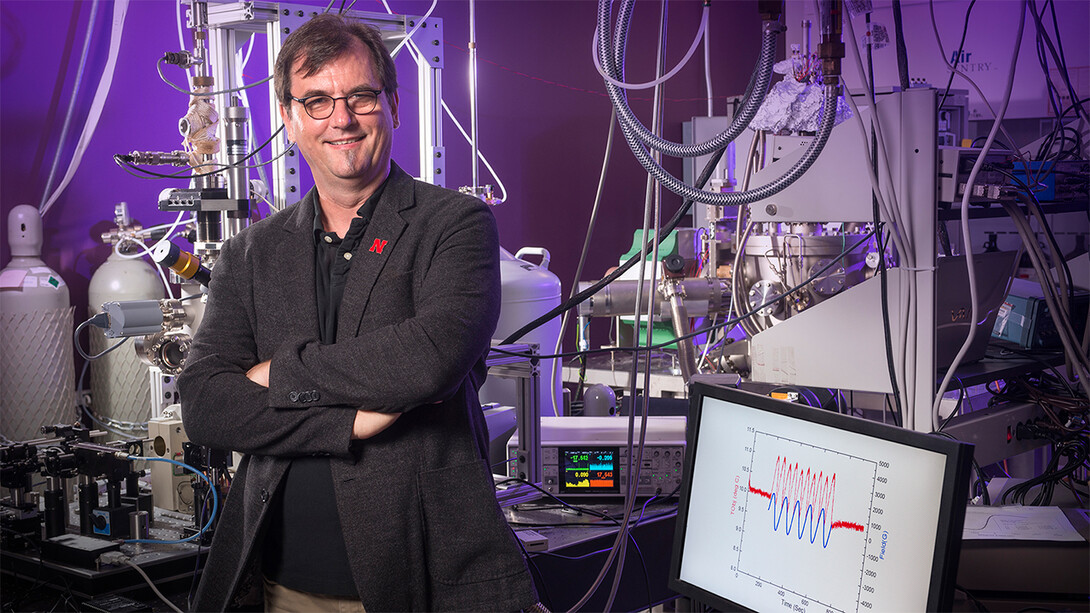
Cutting-edge research happening right here in Nebraska is closely tied to two of this year’s Nobel Prizes in science.
The EQUATE collaboration (Emergent Quantum Materials and Technologies) includes physicists, chemists and engineers from across the University of Nebraska system and Creighton University. Funded by the National Science Foundation, EQUATE includes 20 faculty members and 100 students working to understand materials at the atomic level.
Their goal? To discover new properties of quantum materials and harness them for future quantum technologies, including next-generation information technologies.
This year’s Nobel Prize in Physics was awarded to three scientists — John Clarke, Michel H. Devoret, and John M. Martinis — for their work on macroscopic quantum tunnelling and energy quantisation in an electric circuit, which led to today’s superconducting qubits, the building blocks of quantum computers such as those developed by IBM and Google.
Christian Binek, EQUATE’s scientific director and Paula and D.B. Varner Professor of Physics at the University of Nebraska–Lincoln, says one of EQUATE’s research teams is working on analog quantum emulation: a way to simulate quantum systems such as complex molecules. Some EQUATE researchers are even developing new types of qubits that could outperform today’s superconducting versions.
Meanwhile, the Nobel Prize in Chemistry went to Susumu Kitagawa, Richard Robson, and Omar M. Yaghi for creating metal-organic frameworks, which are materials made of metal ions and organic molecules. These molecules are an important part of EQUATE’s research, too. Binek explained that these materials can not only serve as robust qubits, but that certain metal–organic frameworks containing spin-crossover centers are used by EQUATE scientists as linker molecules to control how qubits interact with each other.
“It’s exciting to see the topics we’re working on gain public attention,” Binek said.
He also highlighted EQUATE’s “team science” approach and the project’s work with Nebraska EPSCoR, which helps bring research funding and opportunities to scientists across the state.







